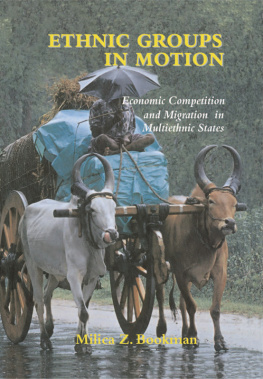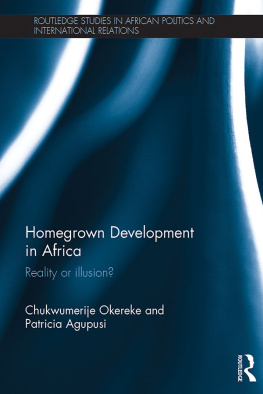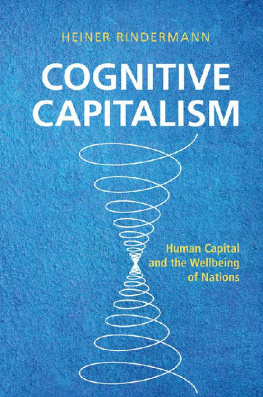Reducing Inter-generational Ethnic Poverty
This book looks at human capital development and provides an explanation for why cognitive development varies among ethnic groups. The book uses an interdisciplinary approach to examine inter-generational ethnic poverty. It puts forth an argument that the ethnic poverty gap can be reduced, and to do so we need a broader view of human capital which considers the match between the nature of the economy and the specific capabilities needed. The book focuses on the interrelationship between developmental psychology and socio-economic status and argues that the most important relationship in a knowledge economy is actually the one between a parent and a child.
The book begins by looking at cultures and assimilation and investigates the link between education, culture and socio-economic status. It also attempts to answer the question of what the link between culture, parents and childrens ability is and why ethnic groups vary in their nurturing. It delves into how parenting and cognitive development are interrelated.
This thought-provoking book concludes with an emphasis on nurture and how it may alleviate ethnic poverty and shape social policies. The book provides a strong thesis to counter explanations based on racial and genetic superiority.
Greg Clydesdale lectures at Lincoln University, New Zealand. His expertise centres on economic growth and welfare on which he has authored four books. He has conducted staff training and consultancy programmes for public and private organizations including the Ngai Tahu Development Corporation (a Maori tribe).
First published 2021
by Routledge
2 Park Square, Milton Park, Abingdon, Oxon OX14 4RN
and by Routledge
52 Vanderbilt Avenue, New York, NY 10017
Routledge is an imprint of the Taylor & Francis Group, an informa business
2021 Greg Clydesdale
The right of Greg Clydesdale to be identified as the author of this work has been asserted by him in accordance with sections 77 and 78 of the Copyright, Designs and Patents Act 1988.
All rights reserved. No part of this book may be reprinted or reproduced or utilised in any form or by any electronic, mechanical, or other means, now known or hereafter invented, including photocopying and recording, or in any information storage or retrieval system, without permission in writing from the publishers.
Trademark notice: Product or corporate names may be trademarks or registered trademarks, and are used only for identification and explanation without intent to infringe.
British Library Cataloguing in Publication Data
A catalogue record for this book is available from the British Library
Library of Congress Cataloging-in-Publication Data
A catalog record has been requested for this book
ISBN: 978-0-367-61629-8 (hbk)
ISBN: 978-1-003-10577-0 (ebk)
Typeset in Galliard
by Taylor & Francis Books
In 2007, Nobel Prize-winner James Watson issued his forecast for Africa saying he was inherently gloomy about the prospects for the continent. However, it wasnt his forecast that upset people but his explanation why he expected poor outcomes. He said all our social policies are based on the fact that their intelligence is the same as ourswhere all the testing says not really.1
Watson was not the first to make these claims. They have been made repeatedly ever since intelligence tests found differences between ethnic groups. In 1994, Herrnstein and Murrays book The Bell Curve claimed that socio-economic outcomes were a consequence of intelligence differences between ethnic groups.2 This prompted the American Psychological Association to issue a response in which they questioned many of the claims in the book.3 Nevertheless, they acknowledged a difference in IQ scores between ethnic groups. They also acknowledged there is not an adequate explanation for those differences.
A number of explanations have been offered for the differences. These include the fact that IQ tests measure styles of intelligence that favour white people. Another explanation questions the very notions of intelligence and races. However, the most common explanations focus on the environment. Ethnic groups vary in their achievement because they live in different environments and these generate different developmental outcomes. In particular, minority ethnic groups experience lower socio-economic status, health and nutrition. They also experience structural disadvantages including discrimination and cultural trauma.
However, there is disagreement whether these explanations account for all the gap in intelligence scores. A number of writers, such as Eric Turkheimer, argue that environmental forces are a factor, but they do not account for all the gap in intelligence.4 Nicholas Mackintosh wonders if it is indeed possible to know what extent the environment explains the gap.5
It is hard to definitively state whether enough evidence exists as, despite their skills in scientific method, academics are still prone to bias reflecting their training and socio-political views. For example, James Watson is a geneticist, so he favoured a genetic explanation. Nevertheless, the debate will remain until the gap is firmly closed. This book hopes to close that gap, or at least make it a little smaller, but what is needed to do that? James Watson made it clear what would close the gap for him. He stated that he would like to see new knowledge that shows
nurture is much more important than nature but I havent seen any knowledge and theres a difference on the average between blacks and whites on IQ tests. I would say the difference is genetic.6
In other words, to close the gap we need to pay closer attention to the nurturing process in different cultures. The father of economics, Adam Smith, lived in an ethnically homogeneous society, but he made an explicit judgement that differences in outcomes were caused by nurture not nature. He claimed:
The difference between the most dissimilar characters, between a philosopher and a common street porter, for example, seems to arise not so much from nature, as from habit, custom and education.7
Adam Smith believed we are born as relative equals but about the age of 68,
they come to be employed in very different occupations. The difference in talents comes to be taken notice of, and widens by degrees, till at last the vanity of the philosopher is willing to acknowledge scarce any resemblance.8
But this leaves us with unanswered questions. What are the habits and customs and educational differences that create these differences in outcomes, and why do ethnic groups vary in their nurturing? We also need to know why these differences affect cognitive/intellectual outcomes.
The problem to date is many social scientists have deliberately shut the door on some nurture explanations. In particular, they will not consider a link between culture and poverty. As Princeton Professor Douglas Massey notes:
For decades, it was not possible to use culture and poverty in the same sentence in polite sociological company.9
That means they have closed the door on a corridor that could lead to solutions. Fortunately, not all scientists have ignored this direction. Anthropologists, developmental, educational and cross-cultural psychologists have all produced research that can help us understand the problem. This book draws on their work.







